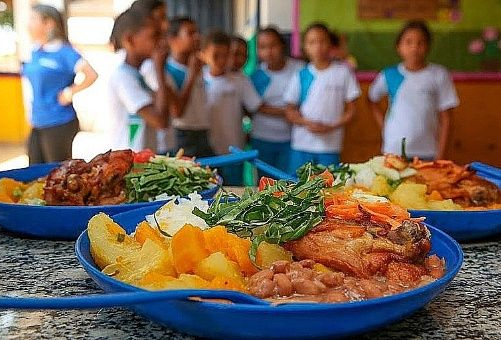
Experts consider that progress in food security responds to effective public policies to fight hunger and poverty. | Photo: Brazil Agency
Brasilia, April 29 (RHC)-- The Brazilian Institute of Geography and Statistics (IBGE) announced that the number of people suffering from severe food and nutritional insecurity decreased from 33.1 million in 2022 to 8.7 million in 2023.
The institute made public the results of a sociopolitical study that reveals that this index affected 15.5 percent of the Brazilian population in 2022 and a year later it affected 4.1 percent, which represents a drop of more than 11 percentage points.
In this regard, the Minister of Social Work, Family and Fight against Hunger, Wellington Dias, assessed that this result reflects the will of the Government of President Luiz Inácio Lula da Silva to resume public policies of proven effectiveness against hunger and poverty.
He recalled that these were abandoned during the administration of the far-right president Jair Bolsonaro, who was at the head of the country between 2019 and 2023.
The official highlighted that Lula's Government removed "24.4 million people from this situation, who will now have breakfast, lunch and dinner every day."
The survey, applied jointly between the IBGE and the Ministry of Development and Social Assistance, Family and Fight against Hunger (MDA), revealed that despite the progress, 64.2 million people (27.6 percent of households) still do facing some degree of food insecurity.
Of these, 14.3 million faced mild food insecurity, 4.2 million faced moderate food insecurity, and 3.2 million faced acute insecurity. The rate of households with moderate or severe insecurity in urban areas was lower than that in rural areas (8.9 percent compared to 12.7 percent).
In terms of regions, the north and northeast had the lowest proportion of food secure households: 60.3 and 61.2 percent, respectively.
Another revealing fact was that among households with food insecurity, 29.0 percent corresponded to those whose managers were white, 15.2 percent were black and 54.5 percent were mixed race.
According to IBGE experts, the general result achieved in the fight against poverty and hunger is due to the expansion of social programs, the recovery of the labor market, the increase in the minimum wage, the reduction of food prices and others. efforts, such as mitigating inflation.
Unemployment stood at 7.8 percent at the end of 2023 and inflation, measured for the food price segment, went from 12 to 1 percent. Brazil left the United Nations Hunger Map in 2014, but returned to it in 2022, during Bolsonaro's presidential term.

